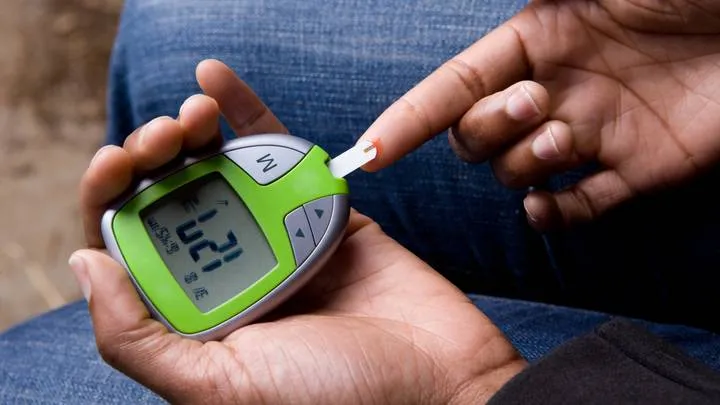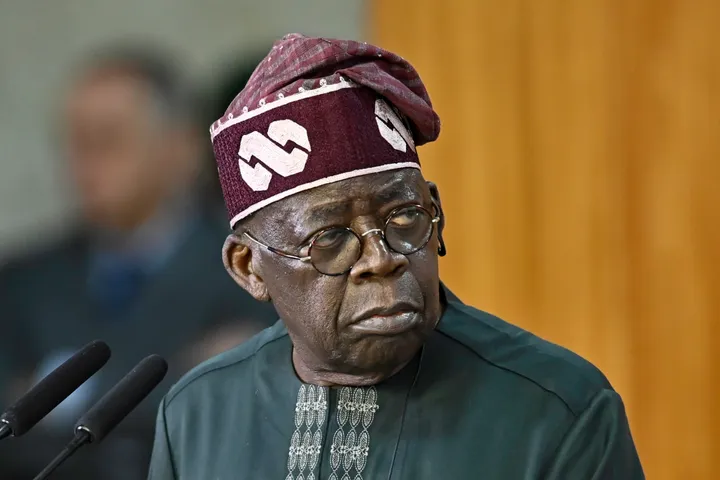Michael Adeyemi, wey be Nigerian man, dey drive im taxi for one busy road for Lagos, when e begin feel dizzy.
Di 58-year-old driver park im motor, hold di steering tight as e dey feel say im head dey turn.
For months, e no send di headache wey e dey get. Di same thing with di tiredness. E go dey waka for hours for di city wey no dey ever rest, and e no even think say e suppose check wetin dey do am.
But dis one na different matter.
"I think say na just stress and wahala of city life," Adeyemi yarn give TRT Afrika.
"We no get time for sickness. You go dey work, find food chop, sleep. To check your blood pressure na one kind luxury wey you go dey postpone till Saturday wey no dey ever come."
Di dizziness wey catch am for road na sign say e don get high blood pressure, wey join di 1.4 billion people wey dey suffer di sickness, according to World Health Organization (WHO) report wey dem release last year.
Common reasons for di sickness
WHO numbers show say di sickness na one kind health emergency wey dey hide for open: only one out of five people for di world dey check their blood pressure.
Even though person fit prevent di sickness wey dem dey call "silent killer" with medicine and treatment, e fit turn wahala if dem no treat am quick.
Doctors don warn say if person no treat high blood pressure, e fit cause heart attack, stroke, kidney failure, and even madness.
Di report wey dem present for di 80th United Nations General Assembly show say di health system get plenty gap and inequality.
Di report talk say 93% of countries wey get plenty money get all di high blood pressure medicine wey WHO recommend, but only 28% of poor countries get di same.
Dis gap between rich and poor countries mean say millions of people dey face preventable death and disability because of high blood pressure-related sickness.
Hard life
Grace Mbeki, wey be 42-year-old teacher wey dey live for one town near Cape Town for South Africa, dey try manage her mama high blood pressure after di sickness cause stroke for di mama.
"Di hospital far from my house, and sometimes I go come back without di medicine wey dem prescribe because e don finish," Mbeki yarn give TRT Afrika.
"You go just dey watch person wey you love dey turn shadow. Dis sickness no just dey break heart, e dey break family and their money too."
Her words show di daily struggle to manage di health system wey dey under pressure and di way medicine dey disappear from hospital shelves without warning.
Economic burden
Between 2011 and 2025, dem estimate say heart-related sickness go cost middle and low-income countries about $3.7 trillion.
Dis one dey show how di sickness dey drain money from savings and dey shift resources from education, infrastructure, and economic development.
"Every hour, more than 1,000 lives dey lost because of stroke and heart attack wey high blood pressure dey cause, and most of dis deaths fit be prevented," WHO Director-General Dr. Tedros Adhanom Ghebreyesus talk.
"Countries need to get di tools to change dis situation."
Di report show say weak health policies dey leave people unaware of di dangers of smoking and eating too much salt, wey dey worsen high blood pressure.
Another issue na di lack of trained primary care workers, wey dey make early detection and proper treatment hard.
For patients like Adeyemi and Mbeki, dis failures dey show di uncertainty and daily risks dem dey face.
"Untreated high blood pressure dey kill more than 10 million people every year even though e fit be prevented and treated," Dr. Kelly Henning from Bloomberg Philanthropies talk.
"Strong policies wey dey raise awareness and expand access to treatment dey very important."
One step at a time
WHO don praise Asian countries like Bangladesh, Philippines, and South Korea for di progress dem don make to tackle di high blood pressure epidemic by including blood pressure care into their universal health coverage and primary care systems.
For Bangladesh, blood pressure checks for some areas don increase from 15% to 56% within few years, wey show say good policies and implementation fit bring better results.
Dr. Tom Frieden, wey be top doctor for America, talk say "We get safe, cheap medicines to manage high blood pressure, but many people no fit get am."
"Closing dis gap go save lives and billions of dollars every year."
For Adeyemi case, dis gap dey show di distance between im taxi and affordable, reliable medicine. Now, e dey carry im medicine go anywhere e dey go.
"I be one of di lucky ones," e talk as e place hand for im chest. "I get warning. But wetin go happen to di millions wey no get?"
"We need di world to hear our heartbeat before e stop to dey beat."





























